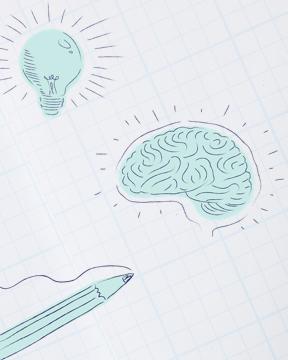All Prototypes Are Not Created Equal
Five examples that fueled very different ideas
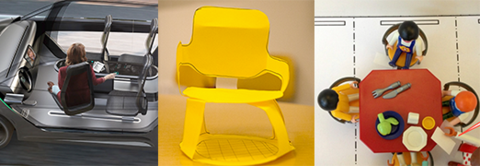
At the global design company IDEO, we often think about fast, inexpensive ways to share ideas with others, and get answers to important questions that we have. This is why we prototype; prototypes help us move from ideas to action.
Sometimes these prototypes are high-end renderings or high-fidelity designs that help us communicate a future vision or concept. More often than not, these prototypes are made from hand sketches, objects built out of simple household items, or things built with typical office supplies.
To learn more about different prototypes and their purpose—read on.
The Future of Mobility
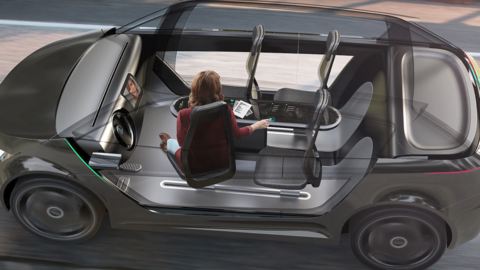
This was a big project, with many parts to think about what is possible when our hands come off the wheel, and driving becomes less of the focus. Though a lot of rough, scrappy prototypes were built to understand people’s needs when it came to thinking about the future of mobility, when it came time to communicate a future vision, we designed digital renders like this one to give people a clear, realistic sense of what an autonomous vehicle experience might look and feel like.
An App Experience
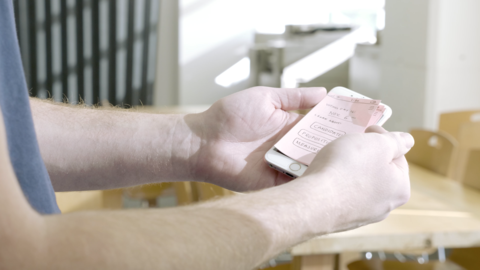
To understand if people would see the value of a digital app we were working on, we could’ve spent hours creating a digital version of the app, using prototyping software or even a slide deck. But at an early stage, when the question was as basic as, “Will people want to use this app?”, sketches of screens on a series of post-it notes that users could peel through, one by one, was all that was needed.
A New Kind of Cafeteria
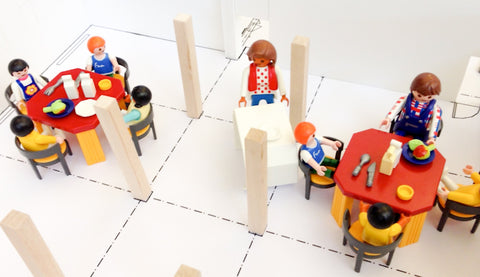
When an organization with a cafeteria for children wanted to understand if it could provide a higher level of service by changing staff roles, objects, service flow, and operations, all while staying within its existing budget, they turned to prototypes. The organization used craft supplies and children’s toys to role-play different scenarios for both front- and back-of-house scenarios.
What’s the Future Office Chair Look Like?
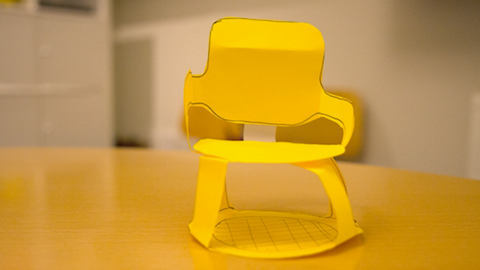
Sometimes, just getting tangible with an idea can help push your work forward.
In this case, IDEO designers were working with a client to figure out what the future of the office chair might look like. Early on, they wanted to push their own thinking on what might be possible. Instead of coming up with sketches, digital images, or physical prototypes, these designers crafted as many different designs as they could, using common office supplies such as pen, paper, glue, and tape.
Feeling inspired to start prototyping? Learn more in the IDEO U course From Ideas to Action.
- choosing a selection results in a full page refresh
- press the space key then arrow keys to make a selection



